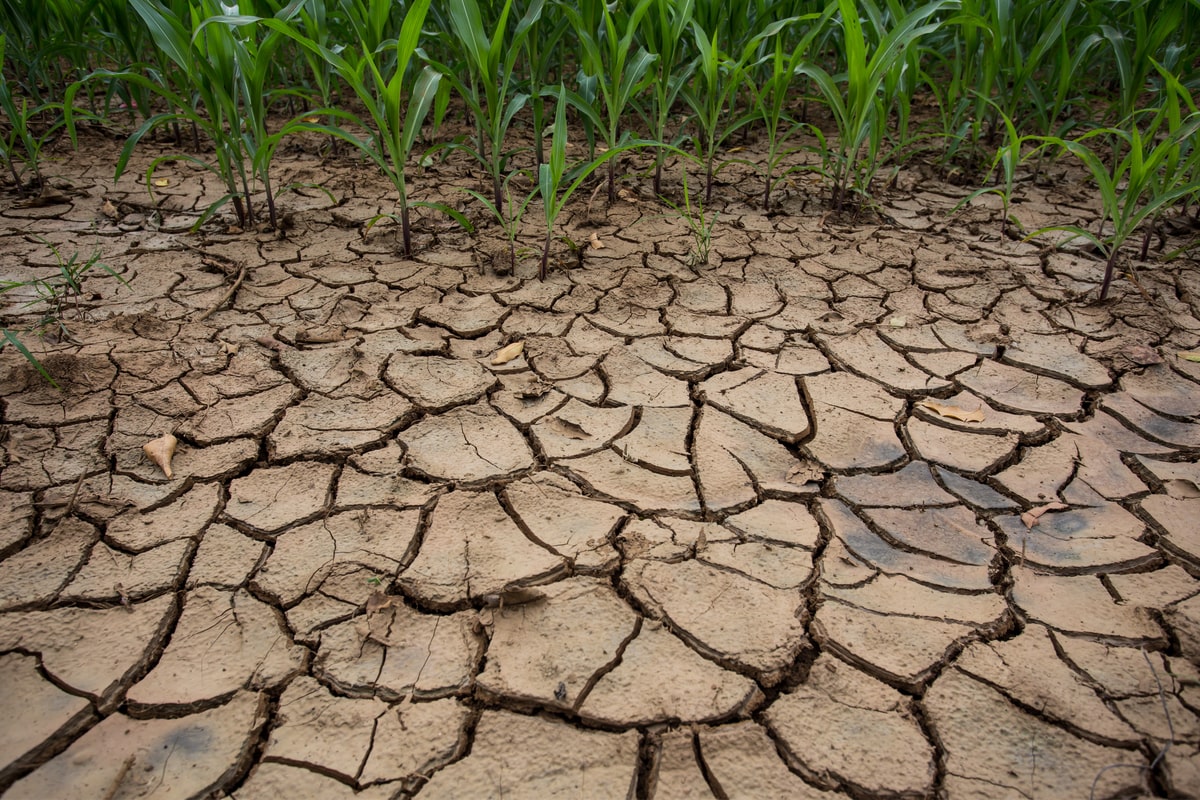Global warming can cause global famine. The poorest countries are most at risk

The research of scientists clearly shows: the negative effects of global warming are most severely felt by the poorest countries. Ironically, these same countries have the least contribution in terms of greenhouse gas emissions to the atmosphere.
According to Christian Aid, the African people of Burundi are at the top of the list of the most insecure countries in the world. Burundi is also at the top of another list. These are countries with the smallest carbon footprint. In a nutshell: Burundi, with almost no greenhouse gas emissions, suffers the most from global warming.
Climate social injustice.
This is well illustrated by the following comparison: a single resident of Great Britain is responsible annually for the same carbon dioxide emissions as ... just over 200 Burundian. What's more, our statistical Briton does not feel (at least for now) any negative effects of global warming. The Burundians are feeling.
Christian Aid charity researchers conducted a study showing how this climate change has a disproportionate impact on the food systems of countries that have done the least to produce carbon dioxide emissions that raise temperatures. Their research shows that all 10 largest countries, most at risk of lack of food, generate less than half a ton of CO2 per person and a total of only 0.08 percent. global emissions.
In addition to Burundi, the top five countries most at risk of hunger due to climate change include Democratic Republic of Congo, Madagascar, Yemen and Sierra Leone. Further on the list are Chad, Malawi, Haiti, Niger and Zambia.
Let's return to Burundia and compare it with richer countries. In numbers, it looks like this: The Burundians produce 0.027 tons of CO2 per person per year. Someone living in Saudi Arabia produces as much as 718 people in Burundi. US residents are a little less wasteful: there, one person produces as much CO2 as 581 Burundian. Even more environmentally friendly are Russians: one Russian is responsible for the same carbon dioxide emissions as 454 Burundian.
Researchers show a clear link between rising global temperatures and growing food security issues.
- Our research shows that the increasing concentration of CO2 in the atmosphere reduces the nutritional quality of the food we eat and that the people most exposed to such influences are the least responsible for the increase in global CO2 concentration. It is clear from this and other studies that climate change is not just a global health crisis, it is a moral crisis, 'said Dr. Samuel Myers, chief scientist at Harvard University's Department of Environmental Health.
Other researchers say Christian Aid's report on food insecurity is a warning to both rich and poor countries. Climate change has a huge impact on our ability to produce food.
"These are warning signals that we all ignore at our own risk, because agriculture is ultimately one of the most threatened sectors of the economy and the most basic for the healthy functioning of our societies and our communities," said Dr. Doreen Stabinsky, professor of global environmental policy at the College of the Atlantic in Maine, USA, who was not involved in the study.
Both the Christian Aid report and the upcoming IPCC Special Report on climate change, which is expected to be released later this month, are intended to make us aware of the seriousness of this threat and how urgent we must act. Something tells me, however, that both publications will be ignored as usual.
Global warming can cause global famine. The poorest countries are most at risk
Comments
Post a Comment